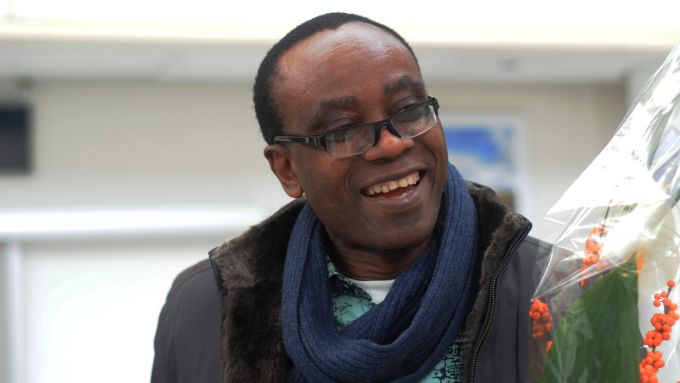A conference on the intersection of academics and activism was recently held as part of events marking 40 years of the Right Livelihood Awards. It provided an excellent platform to mingle with ageing activists as well as young and aspiring ones. The conference was hosted in Bangkok and took place in a university campus as well as in an Ashram. It drew participants from all regions of the world.

If you think that most of the time was spent on nostalgic recollection of some good old days, you would be totally wrong, but of course, there were moments to trace the origins of the Foundation from when Jakob von Uexkull, the founder, felt that by refusing to give an environmental prize, the Nobel Prize was missing out an important constituent of persons and organisations courageously contributing practical and exemplary solutions to global problems. That was how the Right Livelihood Foundation and its awards came into being. Fourty years down the road, the Foundation has chalked up 178 laureates from 70 countries.
The theme of the conference was “Education for Right Livelihood – Connecting Activism and Academia”. In the forum were laureates who received the award in the 1990s and who are still going strong, providing leadership in diverse struggles. They included Vandana Shiva who received the award in 1993 and Sulak Sivaraksa who was honoured in 1995. The Landless Workers’ Movement (MST) of Brazil who received the award in 1991 was represented. Survival International (France) received the award in 1989 and was represented by Fiore Longo who was quite young at the time the organisation received the award. In all, there were about a dozen laureates at the conference.
While we drank from the springs of wisdom from the laureates such as Shiva and Sivarasksa, highlights of the days included the vibrant participation of youths who shared the spaces equally with the more elderly participants. It was a delight to hear the young folks, who came mostly from Thailand, Vietnam, Bhutan and Myanmar, lay out what they felt was the way to spread system changing ideals around the world.
They especially insisted that the voices of the youths must not only be raised but must be heard. They suggested a system of continuous learning, including what they termed Travelling Universities through which youths could cross pollinate and share ideas with colleagues from around the world. Warning: this article drifts into the recesses of my mind and is not totally a report of that conference.
The place of the arts in protests and activism cropped up frequently and their preponderance during mass actions was noted. I thought on the awakening of the streets as critical spaces for seeding progressive ideas and wondered whether the protests proffer real solutions and if the root causes of global problems can be unearthed on the streets. But then, it has always held true to me that saying NO; and rejecting a wrong is a solution in its own right.
The intensity of street marches and actions in recent years could make us wonder whether the world is at a tipping point or on the verge of a revolutionary moment. How could these actions counter the ambiguous, amoral, conscienceless and flippant political leadership in the world today? If we speak of reclaiming power, have we interrogated the very concept of power? Has the nature of power and its dynamics changed over time? Are the streets arenas for deeper things than building excitement and offering spectacle?
How do we tackle the forces of exploitation in the world today? Has the idea of democracy become a mere illusion in the world today? With the increasingly nationalistic and petty responses to issues, has the sense of citizenship changed over time? More questions. Considering that the street is not uniform across the world, how widespread can disruptive activism be practised and to what end?
In private conversations, the youths wished to know if it can be said that something is a Green New Deal when it is built on the same extractivist, polluting and unjust paradigms that created the problems it seeks to solve. Seeing the rush to introduce extinction genetic engineering, the youths wondered if technologies, including those pushed by “the poison cartel,” have made it impossible for humans to see and relate to Nature. The poison cartel, for those who do not know, promote genetic engineering, practice toxic agriculture and basically steal seeds from farmers and the poor.
Of all the questions that emerged and floated around, one took a huge corner of my mind and set up its tent there. In this age of rising individualism, is our experience dependent on, or validated by how people respond to our experiences? Huh? A lot of people post materials on social media platforms primarily to see how many people would like or share what they have posted. The more the likes, the more the sense of validation of the person that posted or shared the material. How real is this?
The streets. Do they give us space in which the quality of our disagreement with the status quo can be sensible or is the street a marketplace for a cacophony of noises? The idea of making sense of disagreements lead to the recollection that the Occupy Movement always had moments for teach-ins to ensure that participants did not see the actions as mere spectacle but keep in mind the reasons why they were protesting and what outcomes they sought.
There were many outputs from the conference, including a stress on building actionable knowledge and promotion of intergenerational learning. The point was also made that as we struggle to build a just future, we must investigate the far past and project the future without being restricted by the present. The future will be self-reinforcing and diverse. It will be built on a mix of ancient and contemporary wisdom with a concrete understanding that we are related to all species.
Nnimmo Bassey is Director, Health of Mother Earth Foundation (HOMEF)
